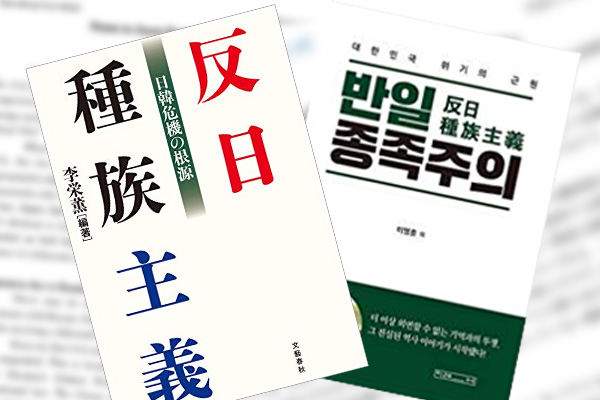I have recently had a talk with former Seoul University professor of economics Lee Yong Hoon who authored “Anti-Japan Tribalism,” which has become a bestseller in Japan as well as in South Korea
What Lee describes as anti-Japan tribalism means illusion unrelated to historical facts, rational thinking or intellect. When their country, society or race is plagued with problems, Koreans view Japan as the root of all evils, blame Japan for causing their hardship and step up anti-Japan campaigns to become complacent without thinking any more, according to the book. Such intellectual laziness has undermined Japan-South Korea relations over not only the historical awareness but also economics and politics.
If Koreans fail to overcome their anti-Japan tribalism that prevents any rational thinking, the future of the Republic of Korea would be dark. Lee wrote the book foreboding the country’s ruin.
A patriot accusing a country of lies
Therefore, the book is full of surprisingly frank comments. It brands South Korea as a country of lies and criticizes the people who lie, the politics which lie, the scholarship of lies and the trials of lies. As a scholar, Lee heartfully urges South Korea to wake up and its people to rack their brains. The author wrote that comfort women were not coercively recruited or treated as sex slaves and that wartime Korean workers in Japan were paid fairly according to their labor, receiving pays that were two, three or four times more than for servicemen, teachers, company employees and bankers of the time. He wrote these things in detail because he has conducted research as a historian and deeply loves his mother country.
The direct reason that caused the deterioration of Japan-South Korea relations to the brink of collapse is the South Korean Supreme Court’s ruling in October 2018 that denied the 1965 bilateral claims agreement. The issue of wartime Korean workers in Japan was completely and finally resolved in 1965. Nevertheless, the anti-Japan tribalism has prevented the Supreme Court from recognizing facts, leading the court to totally deny the bilateral agreement and order a Japanese company to pay compensations to former wartime workers.
Lee asked me a question on the matter.
“Japanese companies’ assets in South Korea under seizure by relevant plaintiffs may be cashed and put into a pension fund as early as in December. How will the Japanese respond to that?”
The Japan Institute for National Fundamentals or I am not in position to represent the Japanese government. However, I answered that the Japanese people’s consensus is that the Japanese government should take retaliatory actions to protect Japanese companies as soon as their assets are cashed.
“I really want Japan to do so. South Korean government and people should recognize that their way of doing is unjustifiable and does not work in the international community,” Lee said calmly.
A resolute Japan can build friendship
Lee’s remark may also be taken as a warning to Japan. Traditionally, Japan with a sense of atonement has accepted or conceded South Korean demands even if they were irrational or unreasonable. Such Japanese attitude should have paved the way for the anti-Japan tribalism to spread. Japan is half-responsible for the current situation. For that reason, Japan should take a resolute attitude instead of repeating past vicious practices and make efforts to build truly friendly relations with South Korea in order that the initiative by Lee and his associates can bear fruit.
Yoshiko Sakurai is a journalist and President of the Japan Institute for National Fundamentals


